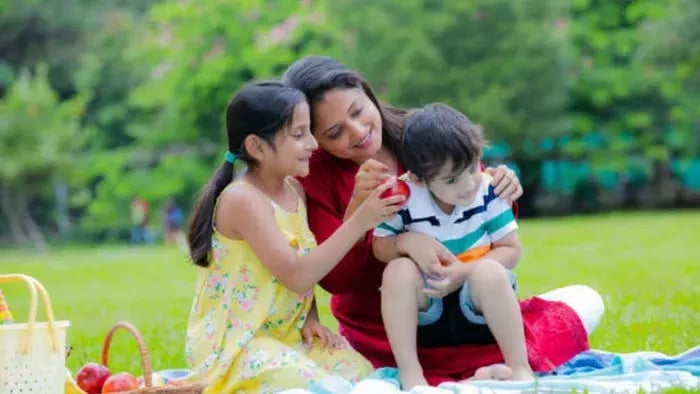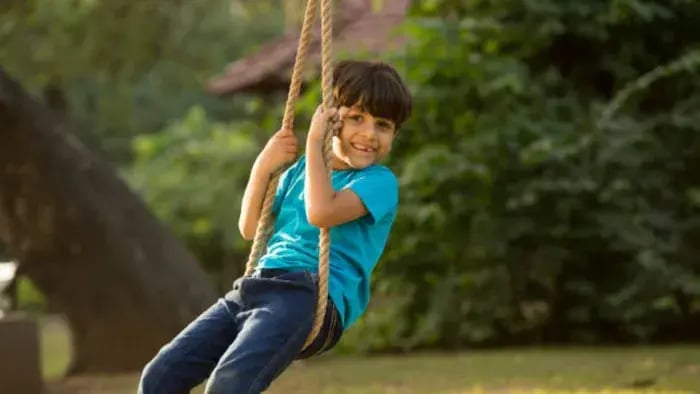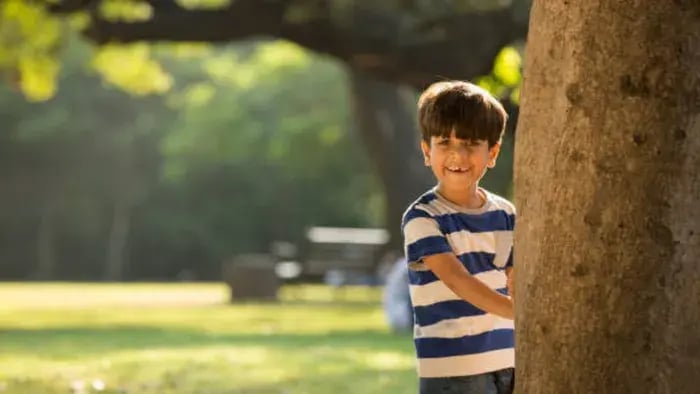- Nature Play for Toddlers (Ages 2–4)
- Pretend and Build Time for Preschoolers (Ages 4–6)
- Craft and Color Projects for Young Kids (Ages 6–8)
- Daily Challenges for Tweens (Ages 9–12)
- Project-Based Exploration for Teens (Ages 13–15)
- Family Bonding Days (All Ages)
- Journaling or Art Diaries (Ages 8+)
Introduction

Summer holidays mean a break from the school routine and timetable, and a chance for kids to explore their interests in a more relaxed way. A child building sandcastles, a preteen busy with craft projects, or a teenager diving into something they truly enjoy, each one sees summer through a different lens. The way children enjoy summer often depends on where they are in their growing-up journey. A younger child might enjoy simple games or messy play, while older kids look for more challenge, creativity, or independence. Teens often prefer time to explore personal interests or just be with friends. That’s why it helps to choose activities that suit their age and mindset, something that feels right for where they are, not where we expect them to be.
The key is to tap into what your child naturally enjoys and gently encourage them to try something new. And when activities are chosen with thought, they give kids the kind of learning they’ll be carrying with them long after summer is over.
No matter what age your child is, there are small but powerful ways to turn the break into something joyful and enriching. It could be as simple as helping in the kitchen, planting seeds in the garden or journaling their days. These moments may seem ordinary but they shape independence, curiosity and personal connection in big ways.
7 Ways to Spend Your Summer Holidays Creatively, Based on Age

Summer holidays are more than just a break from the classroom; they’re a much-needed pause that allows children to breathe, grow, and explore in their own way. Every age group experiences this break differently. Matching activities with each stage of growth helps children build life skills, spark imagination, and enjoy meaningful learning outside the school environment.
Nature Play for Toddlers (Ages 2–4)
Toddlers are at the stage where every small thing is new. Let them explore their surroundings through safe nature-based activities. Set up a sensory corner in your garden with sand, soil, water, leaves, and smooth stones. Create simple tasks like collecting fallen leaves or pouring water into small cups. It builds sensory awareness, boosts curiosity, and improves fine motor skills. It also helps toddlers connect with nature and feel the joy of open-ended play.
Pretend and Build Time for Preschoolers (Ages 4–6)
Kids in this age group love pretending to be someone else. Set up a make-believe space at home, a kitchen with toy utensils, a doctor’s clinic, a grocery shop using cardboard boxes. Encourage your child to lead the story and make their own rules. It enhances language development, creative thinking, and social understanding. Plus, kids feel empowered when they can create their own stories and play them out.
Craft and Color Projects for Young Kids (Ages 6–8)
At this age, children love making things with their hands. Offer craft kits, origami paper, paints, or even recyclable materials. Help them create birthday cards, puppets, or build a city from waste boxes. Set up a ‘display wall’ to showcase their work so they feel proud of their efforts. Crafting encourages patience, attention to detail, and pride in finishing something. It also boosts creativity and independent thinking.
Daily Challenges for Tweens (Ages 9–12)
Tweens thrive on feeling capable and responsible. Create a 10-day or 2-week challenge calendar with a different activity each day: writing a story, cooking with a parent, planting a sapling, doing a DIY science experiment, or learning ten new words. Let them choose and track their progress. It introduces structure while still feeling like fun. Completing small challenges boosts confidence and helps tweens develop planning and consistency.
Project-Based Exploration for Teens (Ages 13–15)
Teens want to feel that what they do matters. Help them pick a project that aligns with their interests, redesigning their room, creating digital art, shooting short videos, starting a blog, or building something with tools. Let them set goals, plan steps, and learn from mistakes. It provides a sense of ownership and responsibility. Teens also develop practical problem-solving and time-management skills, which are important for life.
Family Bonding Days (All Ages)
Set aside one or two days every week for device-free family time. Plan simple but meaningful activities, such as a picnic in the park, a storytelling night, cooking together, or playing board games. These shared experiences strengthen emotional bonds, create happy memories, and remind children that time with loved ones is valuable and rewarding.
Journaling or Art Diaries (Ages 8+)
Give your child a notebook or sketchbook to use daily. They can draw, write about their day, stick photos or leaves, or even write imaginary stories. It’s a quiet space that belongs only to them, where they can express themselves freely. It improves literacy, self-reflection, and emotional awareness. It also encourages kids to value their thoughts and creativity without judgment.
Conclusion

Summer holidays offer children the chance to grow in new and surprising ways. The best activities are the ones that match a child’s age, interests, and emotional needs. Whether your child is discovering nature, crafting stories, building projects, or simply spending quality time with family, these experiences add richness to their growth. Let summer be a season of fun that feeds their mind, strengthens bonds, and leaves them with a heart full of happy, meaningful memories.
Her love for storytelling began with reading her grandfather’s speeches, where Tarishi saw the power of words in creating lasting memories. Combining her passions for food and writing, she has turned her life into a fulfilling path of sharing stories that celebrate flavours and how food brings communities together.
The views expressed are that of the expert alone.
The information provided in this content is for informational purposes only and should not be considered a substitute for professional medical advice, diagnosis, or treatment. Always seek the advice of your physician or another qualified healthcare provider before making any significant changes to your diet, exercise, or medication routines.
















